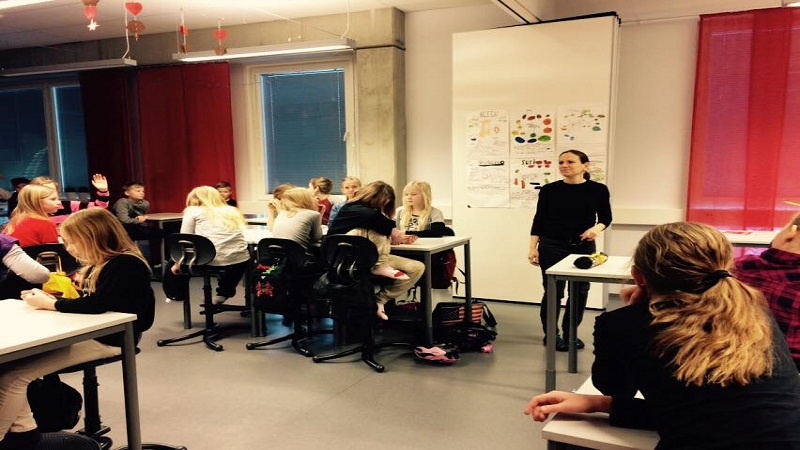Importance of educational technology-In 2019 the USA Commission sent a letter to the education ministers of the European Union urging them to promote computer programming
as a way to combat unemployment. From that moment, the initiatives, both public and private, to incorporate this knowledge into the school curriculum multiply. We analyze the figure of the Expert in education technology within the Employment in Education Guide.
The slow awakening of technology in the classroom
Although the digital transformation of the rest of facets of life is already a fact, the school has not yet achieved a satisfactory implantation for this paradigm change in its day to day. It goes behind. Even so, in several autonomous communities there are already programs dedicated to training digital centers in educational centers.
Although of optional nature. In many of them, specific subjects of robotics, programming or computational thinking have been included in the training curriculum. In others , this knowledge is intended to be acquired transversely. These programs are also accompanied by teacher training.
At the moment a high demand of computer science for the educational system is already taking place . Since the implantation of this type of education requires of specialized personnel. Something that is currently in short supply and where the loss of specialists for the classrooms is predicted.
According to the organization Code.org, teachers specialized in programming, robotics, etc. They will spend only three years in school before going to other professional fields. For this reason, the experts point out as an urgent solution the hiring of specialists in the faculties of education that train future teachers.
What is an Importance of educational technology doing?
An importance of educational technology and digital skills deals with how to apply technology in the classroom. Must know how to develop the necessary technological skills in the student body. Therefore, their knowledge of ICT goes beyond what a normal user may have.
Its mission is to know how to apply the technological tools to put them at the service of learning. And develop the skills in aspects such as digital identity, security. And data protection, educational nanotechnology search for information on the Internet or Big Data applied to the educational field.
To this end, one of its functions is focused on diagnosing the needs of educational centers with regard to technology. And proposing a strategy to adapt them to educational plans and objectives in terms of digital competencies. To the extent that each school has a different level of digital development the expert will develop a plan to adapt it according to its characteristics.
Career opportunities and salary
The work options of an importance of educational technology are multiple. We can find this profile as a coordinator in the ICT departments of the schools. Or developing content, tools and multimedia resources for the classroom. This specialist will be responsible for training in technological skills for teachers and also for the students of the center.
The salary that these professionals can receive varies between 24,000 and 30,000 euros per year.
Training an expert in educational technology
The urgency in endowing the teachers with technological competences so that they can in turn transmit them to the students that will form the citizenship. The future has inspired the National Institute of Educational Technologies and Teacher Training (INTEF) to elaborate an extensive catalog of training in digital competences.
They range from curating content to learning how to screen the vast amount of information that exists on the Internet to the creation. The Computational Thinking School to introduce programming languages from early childhood education .
The vast majority of teachers state that they have trained on their own, and the least are those who have specific training in the form of a master’s, doctorate or vocational training cycle.
This is the case of Carmen Lollops, professor of the Master’s Degree in Educational Technology. And Digital Competences of UNIT and trained as a University Expert in Digital Content Creation. She tells us how she introduces these technological tools in the classroom through the new learning methodologies. Pointing out the advantages and difficulties of native technology.
The importance of new technology in education
At 2 years old, children use the television remote control and at 6 they use consoles and basic digital entertainment devices with ease. According to a study by the National Institute of Communication Technologies, USA children start on the Internet at age 10 and at 13 start to have smart phones. And the doors of cyberspace are presented before them wide open.
For all these reasons, the importance of new technologies in education has several aspects. To provide advantages for learning, to facilitate teaching resources and to educate on the proper use of ICT.
What benefits can the incorporation of new technologies bring to the classroom?
- Increased interest and motivation of the student, who spends more time studying and performs the task with more enthusiasm
- Maintenance of a constant intellectual activity since new technologies require interaction
- Possibility of permanently updating the topics and contents of textbooks for access to information
- Initiative and decision-making are strengthened by requiring participation
- development of searching abilities and information selection
- Immediate learning of the errors when knowing them as they occur
- The exchange of ideas and group work helps the development of social skills
- It favors the inclusion of students with different abilities
The digital blackboard is the star element of the incorporation of new technologies in education. A computer connected to a projector that allows to display in large format all the options of the connected device.
Personal computers, electronic diaries and an intranet that contributes to effective communication are part of the framework of new technologies in education.
The combination of different media has proven effective in increasing learning. A person learns 10% of what they read, 20% of what they hear, 30% of what they see and 50% of what they see and hear.
The importance of new technologies in education is based on this combination of stimuli, interaction. And the search for new learning formats, close to leisure and entertainment, which contribute to the development of talent.





